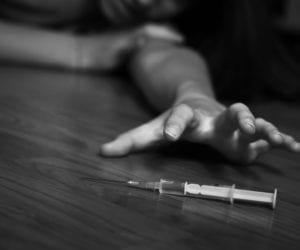Heroin Abuse Statistics

Find out the latest heroin abuse statistics and symptoms of opiate abuse
A look at the latest heroin abuse statistics makes it clear that early intervention and treatment for opioid use offers the best chance of reducing deaths from this highly addictive drug. The latest report from the Centers from Disease Control and Prevention, released in February of 2017, shows that the number of people abusing heroin in the United States has risen sharply from just a few years ago. The increase in heroin abuse has been fueled in large part by the opioid addiction epidemic that is sweeping the country. Heroin abuse statistics reveal that four out of five new heroin users started out misusing prescription painkillers. A closer look at heroin statistics the need to identify and intervene in cases of opioid use if we want to reduce heroin abuse.
Heroin abuse statistics
Heroin is an extremely addictive opioid drug that poses a high risk of overdose and death for users. Figures released by the Centers of Disease Control and Prevention last month shed some light on the epidemic of heroin abuse in the United States.
- Overdoses from heroin abuse have tripled from 8% in 2010 to 25% in 2015
- 25% or one in four of all drug overdoses in the United States are related to heroin abuse.
- In 2015, an estimated 21,000 adolescents had used heroin in the past year, and an estimated 5,000 were current heroin users. Additionally, an estimated 6,000 adolescents had a heroin use disorder in 2014
- 94% of respondents in a 2014 survey of people in treatment for opioid addiction said they chose to use heroin because prescription opioids were “far more expensive and harder to obtain.”
- Being addicted to another drug drastically raises the chance that someone will become addicted to heroin. People who abuse prescription opioid painkillers are 40 times more likely to become addicted to heroin.
Most common heroin abuse symptoms
The high rates of heroin overdoses and deaths has highlighted the need to be able to identify whether someone you know is abusing heroin or other opiates. Heroin abuse causes a number of physical and behavioral symptoms that can be easy to spot once you know what to look for. The most common heroin abuse symptoms include:
- Dry mouth
- Dilated pupils
- Runny nose
- Flushing
- Disorientation
- Slurred or labored speech
- Extremely slow breathing
- Severe itching
- Being “on the nod,” rocking back and forth that occurs from fluctuating between being awake and suddenly falling asleep
- Decreased attention to physical appearance
- Long-sleeve shirts (even in hot weather) to hide track marks
How to recognize signs of opiate use
Over time the signs of opiate use develop and become noticeable, particularly the changes in users’ behavior. Individuals addicted to opiates including heroin begin lying and manipulating to cover up their drug use. Their performance suffers at school and work and they may end up losing their job. Heroin and opiate abusers will do anything to obtain more drugs and avoid the agonizing pains of withdrawal. They often end up selling, pawning, or trading their possessions to pay for their addiction. Eventually heroin abusers begin stealing money or valuables from family and friends.
Treatment for heroin abuse
If you or someone you love is abusing heroin or other opiates, it is important to seek treatment at once. Heroin overdoses are impossible to predict because users are not taking pills that have a set dosage, they are abusing a drug whose purity and strength varies from batch to batch. Abruptly stopping heroin or opiate use can cause severe withdrawal symptoms that make it difficult to quit, but there are medications that can make the process much easier to endure. Entering treatment in a an inpatient addiction treatment center will ensure you get treatment and medication options that will give you a much better chance for long-term recovery.
If you or a loved one needs help with abuse and/or treatment, please call the WhiteSands Treatment at (877) 855-3470. Our addiction specialists can assess your recovery needs and help you get the addiction treatment that provides the best chance for your long-term recovery.
